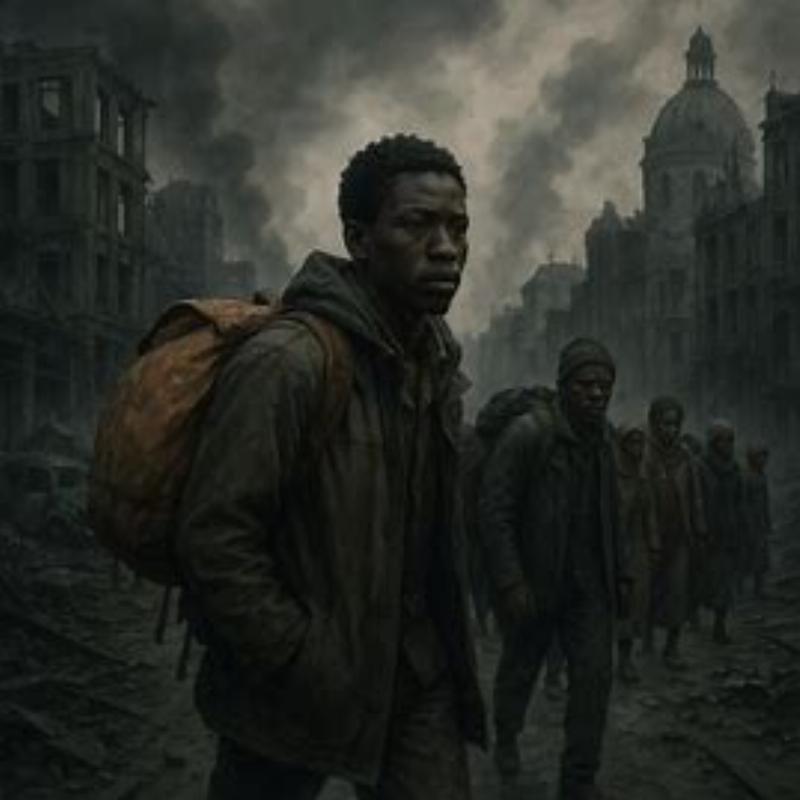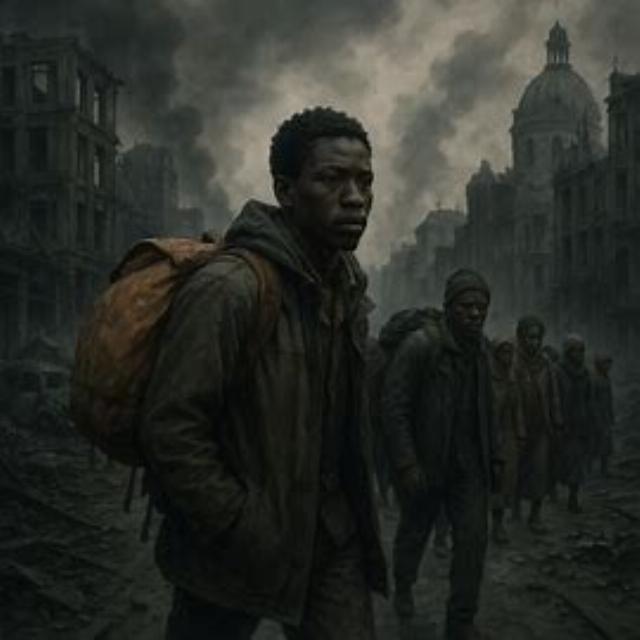


Jean Raspail’s 1973 dystopic work of fiction about a West overrun with third-world foreigners is completely indistinguishable from what the West has become under “progressive” leftist politicians and their idea of “governance” — despotic rule against the will and best interest of the majority. So much for “democracy”!
In that vein, here’s a photo that’s worth ten thousand words, and none of them nice:
That is a third world migrant, cooking his breakfast on the eternal flame of a war-dead monument, with an unknown Belgian soldier buried beneath. A man, probably a father and husband, left his family and his country behind to give all he had to offer this world so that others might live a life of freedom and prosperity, never truly coming home because he bled out on a cold and muddy battlefield, has become a campground cooking top for a dirty, homeless foreigner.
I’m struck by how eerily apropos Raspail’s work is to understanding the mentality of the West’s “newcomers.”
The Camp of the Saints begins with Calgués, a professor, watching from his hilltop home (that’s been in his family for more than three hundred years) as third world foreigners arrive on the shores of France. Calgués notes that there “wasn’t a light to be seen” on the ships, musing that “everything must have gone dead” during the voyage, wondering if it was because there was just enough fuel for this one trip, or because “no one on board … felt the need to take care of such things … now that the exodus had finally led to the gates of the newfound paradise.”
Raspail then writes this poignant text:
Old Monsieur Calgués took careful note of all he saw, of each and every detail, unaware of the slightest emotion within him. Except, that is, for his interest; a prodigious interest in this vanguard of an antiworld bent on coming in the flesh to knock, at long last, at the gates of abundance [emphasis added].
That remains one of the most unsettling and dystopian lines I’ve ever read.
Then, we get to one of Raspail’s most quoted passages, said by a young local who hates the traditionalism and culture of the West and those like Calgués who preserve it, when Calgués finds him lurking inside a doorway of his home:
Shut up before you make me puke! Maybe you’ve got a pretty house. So what? And maybe you’re not a bad old guy. Smart, and refined, and everything just right. But smug, man, so sure of your place. So sure that you fit right in. With everything around you. Like this village of yours, with its twenty generations of ancestors just like you. Twenty generations without a conscience, without a heart. What a family tree! And now here you are, the last, perfect branch. Because you are, you’re perfect. And that’s why I hate you. That’s why I’m going to bring them here, tomorrow. The grubbiest ones in the bunch. Here, to your house. You’re nothing to them, you and all you stand for. Your world doesn’t mean a thing. They won’t even try to understand it. They’ll be tired, man. Tired and cold. And they’ll build a fire with your big wooden door. And they’ll crap all over your terrace, and wipe their hands on your shelves full of books. And they’ll spit out your wine, and eat with their fingers from all that nice pewter hanging inside on your wall. Then they’ll squat on their heels and watch your easy chairs go up in smoke. And they’ll use your fancy bedsheets to pretty themselves up in. All your things will lose their meaning. Your meaning, man. What’s beautiful won’t be, what’s useful they’ll laugh at, what’s useless they won’t even bother with. Nothing’s going to be worth a thing. Except maybe a piece of string on the floor. And they’ll fight over it, and tear the whole damn place apart. ... Yes, it’s going to be tremendous! So go on, beat it. Fuck off!
But, before there was Raspail, there was Deuteronomy (28: 43–53).

Image generated by AI.
